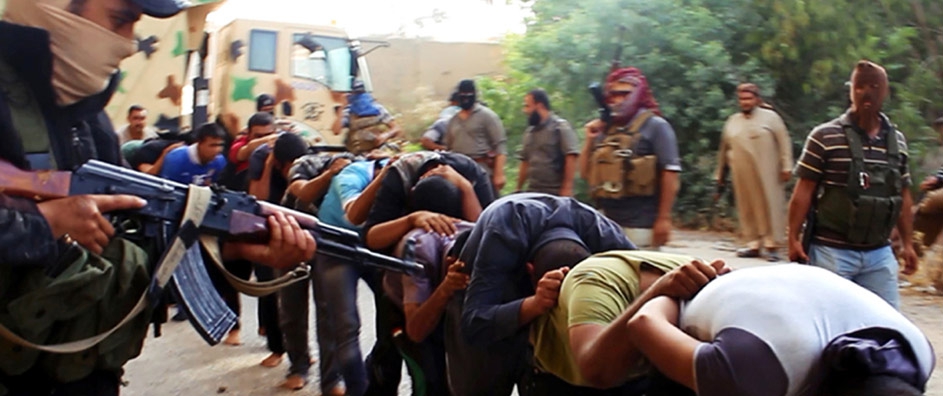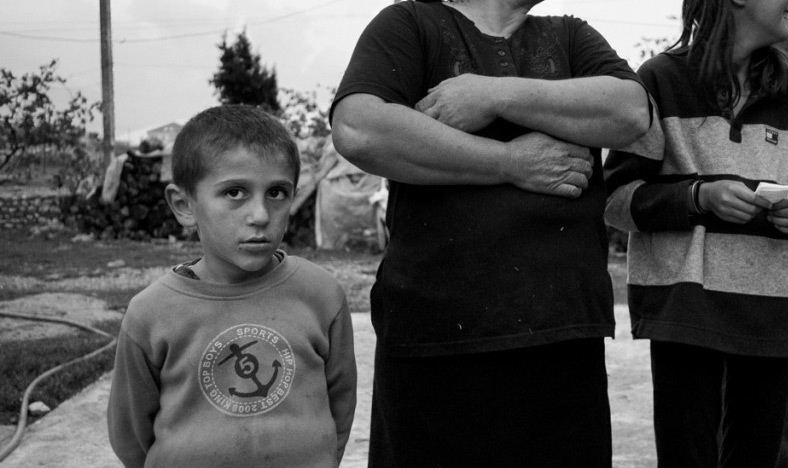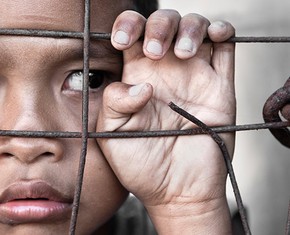The views expressed in our content reflect individual perspectives and do not represent the authoritative views of the Baha'i Faith.
An eye for an eye only ends up making the whole world blind. – Mahatma Gandhi
…vengeance, according to reason, is also blameworthy, because through vengeance no good result is gained by the avenger. So if a man strikes another, and he who is struck takes revenge by returning the blow, what advantage will he gain? Will this be a balm for his wound or a remedy for his pain? No, God forbid! In truth the two actions are the same: both are injuries; the only difference is that one occurred first, and the other afterward. Therefore, if he who is struck forgives, nay, if he acts in a manner contrary to that which has been used toward him, this is laudable…. But if he who has been struck pardons and forgives, he shows the greatest mercy. This is worthy of admiration. – Abdu’l-Baha, Some Answered Questions, p. 267.
Some of the world’s cultures still value vengeance, revenge and retaliation. The urge to retaliate—to return the same injury to the one who injured you—permeates the history of human society. In some places, we still teach it to children: If he hits you, hit him back!
In fact, many old codes of conduct call for the ancient retributive rule of lex talionis–an eye for an eye.
But retribution only perpetuates savagery.
I once spent time in the Balkans, where many rural peoples still practice the Kanun, known as the code of the mountains. This ancient code of behavior, which probably originated in the Bronze Age, works a lot like the Italian concept of the vendetta—it requires exact retribution for murder. If someone murders a member of your family, you must murder him, or a member of his family. Of course, these blood feuds (called Gjakmarrja) never end, with families killing one another for literally hundreds of years, the feud not considered finished until all the men in an entire family are dead. The Albanian government estimates that more than 3000 rural, mountain-dwelling families are now involved in Kanun-based blood feuds, and that as a result more than 10,000 people have been killed in the past two decades.
This kind of vengeance, I learned as a soldier in Vietnam, always escalates and never ends. I saw it happen during the war almost every day. Here’s how it works: you see a buddy get injured or killed. You experience his agony or his death, and it makes you angry. You want revenge, and so you kill the next “enemy” you see. Often that person isn’t even a soldier from the other side, but is simply an unfortunate civilian. Someone from the other side sees that death, and wants revenge. The killing mounts.
The exact same patterns occur in gang violence, in savage terrorism that kills the innocent, and in war.
Professor and psychologist Ian Robertson, who has studied human savagery, says that some of the recent savagery and brutality being perpetrated by ISIS fighters in northern Syria and Iraq can be traced to that kind of retributive vengeance:
Revenge, which is a strong value in Arab culture, may play a part in perpetuating the savagery. Of course vengeful retaliation for savagery begets more savagery in a never-ending cycle. But more, while revenge is a powerful motivator, it is also a deceiver, because the evidence is that taking revenge on someone, far from quelling the distress and anger which drives it, actually perpetuates and magnifies it.
In the Baha’i view, ending retributive vengeance defines the very reason humanity educates its children and builds civil societies. The laws of all advanced civilizations today ban revenge, reserve the application of justice to the legal system and prohibit violence against others. Without inculcating the values of mercy, love and kindness, human society inevitably falls back on the old law of the jungle or the code of the mountains:
If we wish to illumine this dark plane of human existence, we must bring man forth from the hopeless captivity of nature, educate him and show him the pathway of light and knowledge, until, uplifted from his condition of ignorance, he becomes wise and knowing; no longer savage and revengeful, he becomes civilized and kind; once evil and sinister, he is endowed with the attributes of heaven. But left in his natural condition without education and training, it is certain that he will become more depraved and vicious than the animal… – Abdu’l-Baha, The Promulgation of Universal Peace, p. 309.
Were there no educator, all souls would remain savage, and were it not for the teacher, the children would be ignorant creatures. – Abdu’l-Baha, Selections from the Writings of Abdu’l-Baha, p. 126.
So how do we stop such savagery? The Baha’i teachings see the solution to retributive violence and human brutality in the application of Baha’u’llah’s message to human society:
The holy Manifestations of God come into the world to dispel the darkness of the animal, or physical, nature of man, to purify him from his imperfections in order that his heavenly and spiritual nature may become quickened, his divine qualities awakened, his perfections visible, his potential powers revealed and all the virtues of the world of humanity latent within him may come to life. These holy Manifestations of God are the Educators and Trainers of the world of existence, the Teachers of the world of humanity. They liberate man from the darkness of the world of nature, deliver him from despair, error, ignorance, imperfections and all evil qualities. They clothe him in the garment of perfections and exalted virtues. – Abdu’l-Baha, The Promulgation of Universal Peace, pp. 465-466.

















Comments
Sign in or create an account
Continue with Googleor